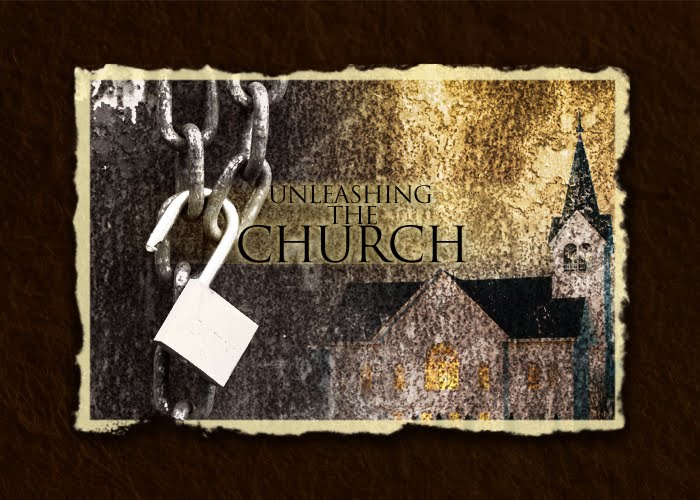Several years ago my friend Frank was teaching a Doctor of Ministry Class at a well known seminary. He told the students that he would be addressing some leadership from a large Parachurch organization after we finished the class. He invited them to share a brown bag lunch on the last day of class. While they ate lunch they were to tell him what they, as pastors, would say if they were addressing this particular group.
He expected some hostility but was surprised at the intensity of the negative issues the pastors raised. (To be eligible for this class a student had to have been on a pastoral staff for a minimum of two years). There was a unanimous out pouring of negative feelings toward this organization, and other similar organizations.
“They take our best people.” “They are shallow theologically.” “They entice people to give them money when that money should be going to our church.” “They are not accountable to anyone.” Etc, etc.
To a person they demonstrated an “us and them” mentality. It wasn’t that they didn’t have legitimate questions and concerns. Their questions weren’t the problem, the problem was the tone with which they asked their questions. They clearly felt threatened by Para church organizations. What they didn’t seem to realize was that it was their attitudes toward local mission that created the huge need for Parachurch organizations in the first place.
Para Became the Norm
The Post WWII generation of American Christians has come to understand that the normal way for the larger Christian Enterprise to function is for those doing mission to go around the church.
The number of Para church organizations within the larger Christian Enterprise in America is staggering. There are a few dozen that most Christians recognize including:
International Students Inc.,
Habitat for Humanity,
Prison Fellowship
Jews for Jesus, etc.
Campus Crusade,
Joni and Friends,
The Navigators,
But the overwhelming majority of Parachurch organizations are small operations that are unknown outside of a small circle of people. There are thousands of such organizations and they continue to multiply at a rapid rate. When churches ignore these front-line ministries and focus primarily on worship and edification; they create the need for more Para church organizations. Plus they abort the mission potential of most of the people in their church.
Ephesians 4:11,12 gives a clear mandate for the church leaders, “It was he who gave some to be apostles, some to be prophets, some to be evangelists, and some to be pastors and teachers, to prepare God’s people for works of service.” When we equip people for works of service we need to understand that most works of service need to be connected to various people groups. We simple don’t get that and we continue to plug them into the same four or five things inside the walls of the church. What is worse about that is that we then hire staff to protect those same four or five ministries. One time I had a person on staff tell me, “Rich we need to tell these people they should serve in our kids ministry and nothing else. We need them and they don’t want to do what we need them to do.” No wonder we dislike parachurch ministries.
Followers
Subscribe to:
Post Comments (Atom)
About Me

- Rich
- I am a slave to no man or institution. I have worked with Frank Tillapaugh for thirty years and most of the ideas are work we would like to share.
The next generation

God thank you for two amazing young leaders
Looking Forward

Each year I get to spend time with young leaders and the gap is growing between them and my generation, why?
Popular Posts
-
I have watched new pastors burn out in less than a year...why? Fuller Institute did a survey and found that 80% of pastors believe that past...
-
General Calling and Special Calling Soon after the Roman emperor, Constantine, converted to Christianity in 315 A.D. churches began to profe...
-
I saw one of my friends (Wes, he is a follower of this blog, God bless him) tonight and he told me after reading this blog he was surprised ...
-
When 20% of the people do 80% of the work in a church, the church leaders usually think that they have an 80% problem. ...
-
I am taking a break from my series to talk about something that just happen. I just met Gavin, he arrived today. His parents Dan and Steph C...
-
If we ask, “what would Jesus do in His new body, i.e. the church; that would be a continuation of what he did in his original body?” The ans...
-
And, believe it or not, a strong emphasis on edification does not often generate mission. Mission potential isn't dependent on how well...
-
Several years ago my friend Frank took a walking tour in London that ended up at Wesley’s chapel. As the tour group ap...
-
Nothing influences the environment of a church as much as the preaching. It is through preaching that people understand how their pastor vie...
-
Ok yesterday I had one response to my blog and while it was thoughtful I was reminded that words on a screen do not always convey the experi...

1 comment:
Yeah ... I understand this from both sides. I remember beginning Scum of the Earth as "One part church, two parts mission," for the following reasons:
1. We wanted to provide a place for people whom the regular church let fall between the cracks in the floorboards.
2. No church I knew would take the risk of bringing us under its spiritual, legal or financial umbrella.
3. We doubted that we could be self-supporting, so we had to raise money like missionaries (which we sure seemed to be ...)
Post a Comment